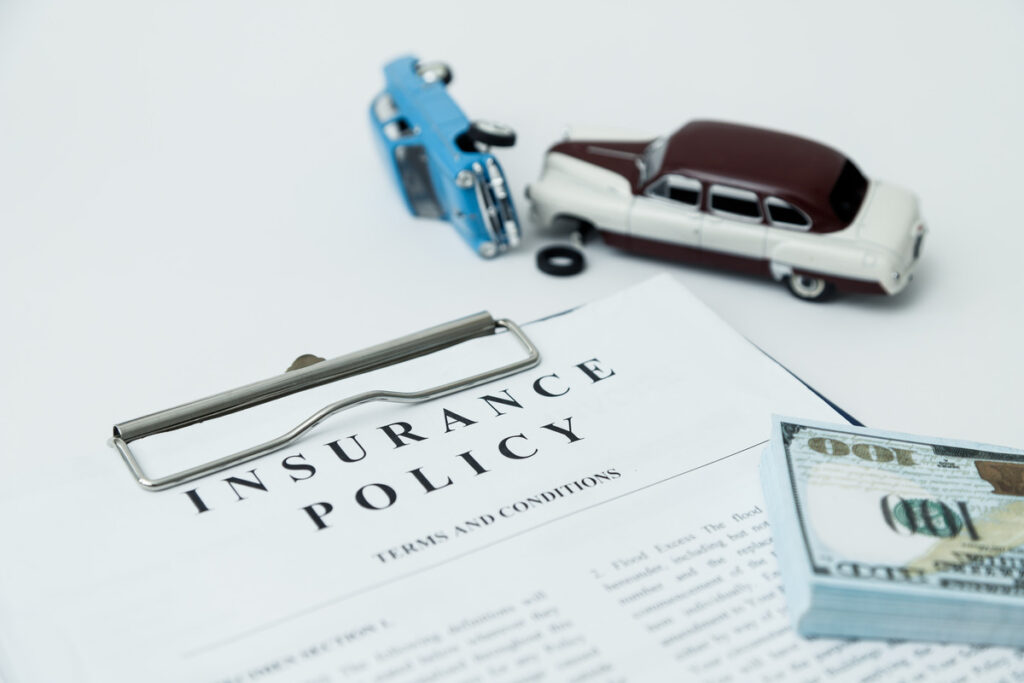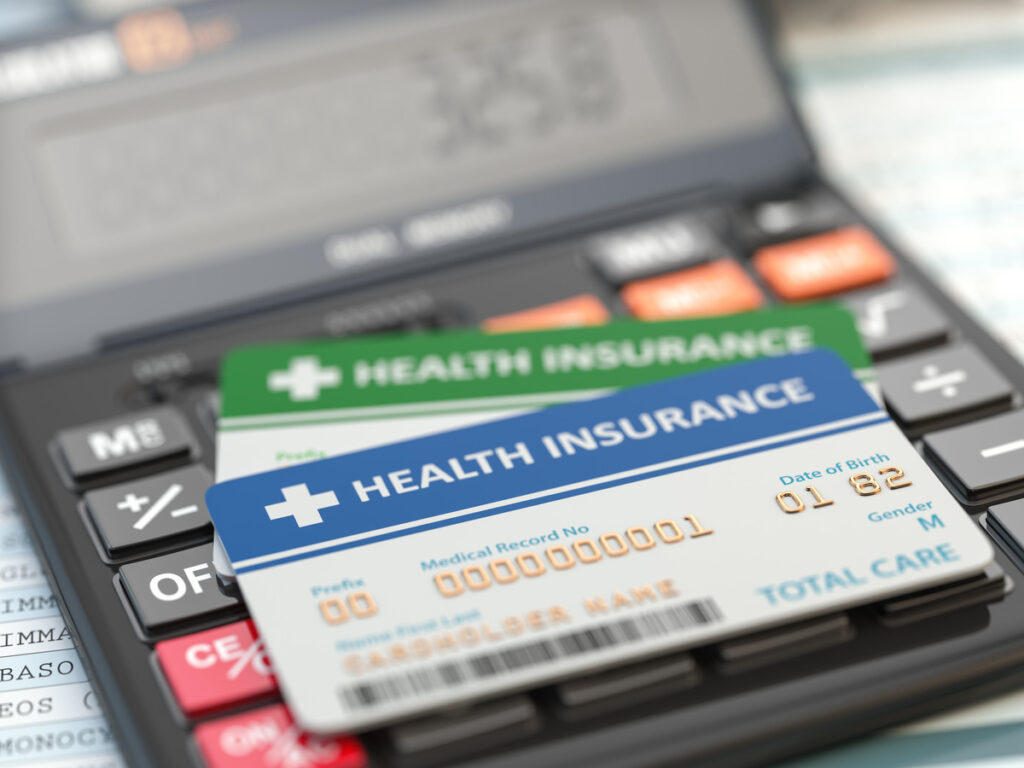Does Your Health Insurance Cover Injuries From a Car Accident?
Table of Contents
- Introduction: The Basics of Health Insurance in Car Accidents
- Primary vs. Secondary Coverage: A Crucial Distinction
- How Fault Influences Insurance Coverage
- 5 Common Questions About “Does Health Insurance Cover Car Accidents?”
- Question 1: Does Health Insurance Cover My Car Accident Injuries if I’m At Fault?
- Question 2: If I’m a Passenger, Does Health Insurance Cover My Injuries?
- Question 3: How Do Pre-existing Conditions Factor into Coverage?
- Question 4: Does Health Insurance Cover Car Accident Injuries in a No-Fault State?
- Question 5: Will My Health Insurance Rates Increase After a Car Accident?
- Steps to Take Immediately After a Car Accident
- Coordinating Between Auto Insurance and Health Insurance
- Special Situations: Uninsured/Underinsured Motorists
- Legal Implications: Claims, Lawsuits, and Settlements
- Recovery and Financial Considerations
- Conclusion & Strong Call to Action
Introduction: The Basics of Health Insurance in Car Accidents

- Your Health Insurance Policy Terms
- State Laws
- The Auto Insurance Policies in Play
- Who is at Fault for the Accident
Primary vs. Secondary Coverage: A Crucial Distinction
When someone asks, “Does health insurance cover car accidents?” a pivotal concept is the role of primary vs. secondary insurance. In many accident cases:
- Auto Insurance often acts as the primary coverage for your injuries.
- Health Insurance typically serves as the secondary coverage, stepping in after auto insurance limits are exhausted or if auto insurance does not cover specific services.
Let’s break down what this means in practical terms:
- Primary Coverage: The insurance that pays first for your medical bills. Usually, if you carry Personal Injury Protection (PIP) or MedPay under your auto insurance policy, these benefits will kick in immediately after a crash. For instance, if you have PIP in a no-fault state, it covers your medical expenses up to your coverage limits, regardless of who caused the accident.
- Secondary Coverage: Your health insurance may handle the remaining costs once the primary coverage is exhausted or insufficient. For example, if your hospital bills exceed your PIP limit, your health insurance could pay the difference—subject to deductibles, copays, network restrictions, and other standard policy stipulations.
How Fault Influences Insurance Coverage

In a no-fault state, each driver relies on their personal injury protection (PIP) coverage for medical expenses, regardless of who caused the accident. Even in no-fault states, fault can still affect pain and suffering or property damage claims if your injuries exceed a certain threshold. The interplay between auto and health insurance remains significant, and understanding your policy limits upfront can save you from unexpected costs.
5 Common Questions About “Does Health Insurance Cover Car Accidents?”
Below are five frequently asked questions about this topic. While policies and laws can vary widely from state to state and insurer to insurer, these responses offer some general guidelines. Consulting an attorney or an insurance professional is always a wise step for specific advice tailored to your unique situation.
Question 1: Does Health Insurance Cover My Car Accident Injuries if I’m At Fault?
Short Answer: Yes, in most cases, your health insurance should still cover your injuries if you’re at fault, but you may need to exhaust coverage offered by your auto insurance policy (like MedPay or PIP) first.
- In fault-based systems, your auto liability coverage primarily protects other parties if you are responsible for the accident. Your injuries might be covered through PIP or MedPay if included in your policy. If those auto coverage limits are reached or aren’t applicable, your health insurance can often cover the remaining medical costs.
- However, you will still face deductibles, copays, or coinsurance fees per your health plan’s guidelines. And if you have a high deductible health plan, you’ll need to meet that deductible before the insurer pays out.
- Depending on state laws, if your health insurance pays for your injuries and you later receive a settlement from another insurance carrier, your health insurance might ask for reimbursement of what they’ve covered.
Question 2: If I’m a Passenger, Does Health Insurance Cover My Injuries?
Short Answer: Your health insurance typically covers you as a passenger. However, the at-fault driver’s auto insurance (or the driver of your vehicle, if they hold MedPay or PIP) might be primarily responsible.
- If you are riding in someone else’s vehicle and get injured, that vehicle’s insurance policy could cover your medical bills, depending on their coverage type. If that coverage is insufficient or denied, your health insurance would generally step in to pay, subject to your plan’s rules.
- You may also have the right to file a claim against the at-fault driver’s insurance policy if you suffer significant injuries. Health insurance often becomes a secondary payer, waiting until liability is established or auto coverage is applied.
- As with other scenarios, your health insurer might seek reimbursement from any eventual settlement you receive from the at-fault driver’s insurer.
Question 3: How Do Pre-existing Conditions Factor into Coverage?
Short Answer: Health insurers generally won’t deny coverage solely because you have a pre-existing condition. However, distinguishing between new injuries from a car accident and exacerbations of a chronic condition can complicate claims.
- The Affordable Care Act (ACA) prohibits health insurers from denying coverage based on pre-existing conditions. Therefore, if you break your leg in a car accident and you have a history of arthritis, your insurer can’t refuse to cover the broken leg.
- The more common dispute occurs when it’s unclear whether ongoing symptoms result from the accident or a chronic condition. For instance, if you have chronic back problems and then experience a car crash, your health insurer may scrutinize whether the accident caused new injuries or aggravated a pre-existing condition.
- Be prepared to supply medical documentation, including imaging studies, doctors’ notes, and expert opinions to confirm that your current symptoms or injuries are related to the accident.
Question 4: Does Health Insurance Cover Car Accident Injuries in a No-Fault State?
Short Answer: Health insurance can still cover your injuries, but your PIP coverage will often be the first payer up to the policy limits.

- In no-fault states, each driver’s auto insurance policy includes personal injury protection (PIP). PIP covers immediate medical expenses and other losses (like lost wages) regardless of who caused the accident.
- Once your PIP limits are maxed out, your health insurance can step in as secondary coverage. Some policies have specific clauses about whether they will pay if PIP coverage is available, so read your policy carefully.
- Suppose your injuries meet the threshold for filing a claim against the at-fault driver. In that case, you may also seek additional compensation for your medical expenses, pain and suffering, and other damages exceeding your PIP coverage.
Question 5: Will My Health Insurance Rates Increase After a Car Accident?
- In contrast to auto insurers—which almost always consider accidents, tickets, and other factors when setting premiums—health insurance rates are more regulated. Under the ACA, insurers can’t raise individual rates because of a specific accident.
- That said, high usage of medical services in a group plan can contribute to overall higher rates for the group in subsequent years. This effect can be indirect and might not be traced explicitly to your accident but to overall claims cost in the pool.
- Some “grandfathered” or non-ACA-compliant plans might allow rate adjustments based on health conditions or claims history. In most modern plans, a car accident alone won’t spike your rates.
Steps to Take Immediately After a Car Accident
- Seek Immediate Medical Attention: Safety first! If you or anyone else is injured, call 911. Documentation of injuries right after an accident is essential for your health and insurance claims down the line.
- Contact the Police: Having an official police report can be vital for establishing fault (where relevant), detailing the incident’s circumstances, and providing an objective record of events.
- Exchange Information: Gather the other driver’s insurance details, name, vehicle information, and contact number. Also note the location of the accident, witness contact details, and road conditions.
- Notify Your Insurance Provider: Call your auto insurer to report the accident. Some health insurance plans also require notification of accidents within a specific time frame. Check your policy documents.
- Document Everything: Keep records of medical appointments, diagnoses, prescriptions, and any out-of-pocket costs for copays, medications, or procedures. Collect any accident-related evidence, including photos of vehicle damage and injuries.
- Consult an Attorney if Needed: Getting legal counsel can help ensure you receive fair compensation, particularly if you’ve been seriously injured or liability is in dispute.
Coordinating Between Auto Insurance and Health Insurance
- PIP or MedPay: If you have these coverages, they generally pay out medical costs immediately after an accident. Keep in mind, though, that they have policy limits. You may run out of coverage quickly, especially in severe injury cases.
- Health Insurance: If and when your PIP or MedPay is exhausted, your health insurance policy should step in, subject to standard deductibles and coinsurance.
- Subrogation: This is a process by which an insurance company seeks repayment from the at-fault party (or their insurer) for money it has paid on your behalf. If your health insurer covers $20,000 in medical bills, for example, and you later receive a settlement from the at-fault driver’s insurance, your insurer might require reimbursement.
- Out-of-Network vs. In-Network: When dealing with emergency care, you might be taken to the nearest hospital, which may or may not be in your health plan’s network. Out-of-network services can be more expensive, so confirm your coverage details if possible.
- Billing Errors: It’s not uncommon for medical providers to send bills directly to the wrong insurer or you personally. Watch for mistakes like that, and if you receive a bill you think your insurer should handle, contact your provider or insurer immediately.
Special Situations: Uninsured/Underinsured Motorists
- Uninsured/Underinsured Motorist Coverage (UM/UIM): If you carry UM/UIM coverage on your auto policy, it can help pay for medical expenses and other damages if the at-fault driver is not adequately insured. In this sense, UM/UIM is a substitute for the other driver’s missing or insufficient liability coverage.
- Health Insurance as a Lifeline: If UM/UIM is unavailable or insufficient, your health insurance can be a financial lifesaver. You’ll still be subject to deductibles, copays, and the possibility of subrogation, but you won’t be stranded with enormous medical bills.
- Potential Legal Action: In some cases, consider filing a personal injury lawsuit against the at-fault driver. However, a lawsuit may not yield significant financial recovery if the driver doesn’t have enough assets or insurance coverage.
- High Deductible Plans: If you have a high deductible or a plan with specific restrictive networks, you might face substantial out-of-pocket expenses even with health insurance.
Legal Implications: Claims, Lawsuits, and Settlements

1. Filing a Claim vs. Filing a Lawsuit:
- Insurance Claim: Usually the first step. You file with either your insurer or the at-fault driver’s insurer, seeking coverage for medical bills, lost wages, and potential pain and suffering (depending on your state and coverage type).
- Lawsuit: If an insurance claim doesn’t provide fair compensation or an insurer denies coverage, you might consider a personal injury lawsuit against the at-fault driver (or even sometimes your own insurer).
2. Settlement Negotiations:
- Insurers often prefer to settle rather than go to court. A settlement typically involves a lump-sum payment covering medical costs, property damage, lost wages, and other agreed-upon damages.
- Once you sign a release of liability, you generally waive your right to seek further compensation for that accident. That’s why consulting with an attorney or thoroughly reviewing any settlement before signing is crucial.
3. Subrogation & Liens:
- If your health insurer pays for your medical costs related to the accident, it might place a lien on your settlement. This means you’ll have to reimburse the insurer for any award or settlement you receive.
- The rules for subrogation vary by state and plan type (e.g., ERISA-based vs. non-ERISA). Some states have “made whole” doctrines limiting insurer reimbursement until the injured party is fully compensated.
4. Comparative Negligence:
- In some states, your ability to recover damages might be reduced if you were partially at fault for the accident. For instance, if you’ve found 20% at fault, your damages might be reduced by 20%.
- Understanding your state’s negligence laws is essential for accurately gauging your legal options and potential recovery.
Recovery and Financial Considerations
Physical Recovery
Emotional and Mental Health
Financial Planning
- Lost Wages if you’re unable to work for a period.
- Reduced Earning Capacity if the accident results in a permanent disability.
- Future Medical Costs for surgeries, ongoing therapy, or rehabilitation.
- Childcare or Home Care Costs if your injury prevents you from handling usual responsibilities.
Insurance Appeals
Conclusion & Strong Call to Action

If you’re dealing with injuries from a car accident or are worried about getting the coverage you deserve, you don’t have to face these challenges alone. At The Law Office of Bobbie Young, we specialize in guiding clients through the complex maze of auto and health insurance claims, helping you secure fair compensation for your medical costs, lost wages, and pain and suffering. We understand the stress you’re under and are here to shoulder the legal burden so you can focus on what truly matters—your recovery.
Your Legal Solution Starts Here
Clear, practical legal advice you can count on when it matters most